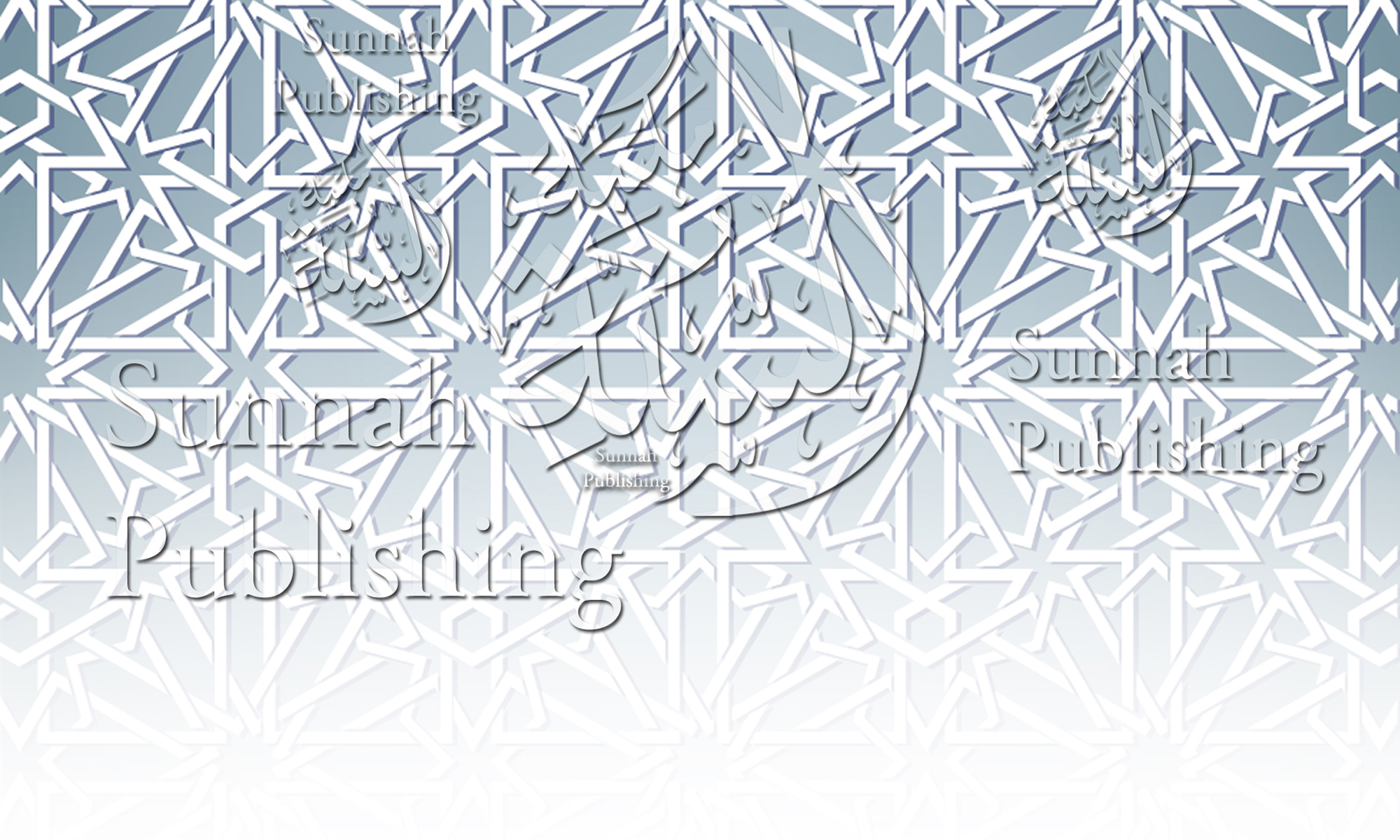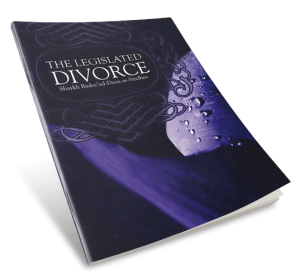The following are selected questions and answers from Aboo Rawaahah ’Abdullaah Ibn Eesaa al-Mawree’s published questions to Shaykh ’Ubayd al-Jaabiree on the topic of polygamy.
[Q.5]: Some people of knowledge exclude from the impermissible backbiting (gheebah), the backbiting a woman commits against her co-wife, so what is the ruling concerning that?
[A.5]: First of all we say: where did they derive that exception from? It is incumbent that this be supported with evidence for indeed the origin of backbiting is that it is impermissible. Also, backbiting is not permissible except when a legislative matter cannot be achieved except by way of it, and one does not go beyond what needs to be mentioned out of necessity. So until today, I do not know of any evidence that permits a woman to back bite her co-wife, meaning out of oppression and transgression. However, if it is due to a defect regarding her Religion, whether this defect necessitates fisq (i.e. being a rebellious sinner) or kufr (disbelief), then she (i.e. the co-wife) is like everyone else and should be warned against and there is no problem with this.
Also, I just now remembered his statement (sallallaahu ’alayhi wa sallam) to ’Aa‘ishah (radiyallaahu ’anhu) when she said, “It suffices you regarding so and so that she is short.” She meant by this: Safiyyah, may Allaah be pleased with all of them. He (sallallaahu ’alayhi wa sallam) said, “Indeed, you have said a word, if it was mixed with the sea it would have changed its odor and taste.” [1]
He (sallallaahu ’alayhi wa sallam) said this, or close to this meaning. At any rate, back biting is impermissible and nothing is excluded from this except what constitutes necessity as we previously mentioned.
[Q.13]: Is it necessary that each wife have a bayt shar’ee and what are the conditions of this type of house? [2]
[A.13]: A separate house specific for the wife is from her legislated rights. Because of this the people of knowledge have said that one should not have two wives in one house, meaning in a small house which is one dwelling; except if they both agree. You find some people who place each wife in their own room, but if they agree to this there is no objection. However the origin is that each of them has their own separate house in which she does not have to share with anyone, except perhaps his or her family members and other than them who may visit, and their affair is well known. But again, this house belongs to her and she possesses the keys and she does in it the likes of what women normally do in their homes. Also the bayt shar’ee differs according to different circumstances and different customs. Custom plays a part in this. You find that the dwelling of the Bedouin women is not like the dwelling of the city women. Even the types of dwellings of the city women differ.
Also the condition of the husband should be examined and what he is able to afford. Because of this we advise the men not to marry women who are above them in social status; meaning from the aspect of wealth and money. He therefore should seek a woman similar to him in social status or a class lower.
[Q.14]: Perhaps the first wife acquired jewelry and furniture from her husband over a long period of time, so is it obligatory for him to give to the second wife the likes of what the first has of furniture and jewelry?
[A.14]: The first wife has preceded in marriage with the husband and has previously received things before the co-wife came along. So due to this long relationship, she acquired things of jewelry and furniture, so it is not required of him that he gives the second wife all of this; because the first received what she received due to her long marriage. So if he wants to be equal and just regarding both of them as Allah the Mighty and Majestic commanded, he must start this from the time of marriage (i.e. when he took on the second wife). Meaning, whatever comes about in the future (he must be just). However, as far as the past, he is not commanded to make the second equal to the first.
[Q.17]: A man wants to get married and he already has a wife. However, he is afraid that some family problems may occur between him and his first wife, keeping in mind that by him taking on a second wife will protect him from evil and fitnah (i.e. fornication etc…), so which of these two harms are greater?
[A.17]: I say in response to this: polygamy is the right of the man just as Allaah commanded,
“Marry the women that you like, two, three or four.” [Sooratun-Nisaa‘ 4:3]
So it is a right of his and she has no right to prevent him. Also we previously said that if she dislikes that, meaning she does not like that her husband marries a second, this is from her fitrah (natural disposition), but it is not permissible that she harms him in his self or his wealth. As for what the questioner thinks, that problems will occur between them, this matter in reality returns to him. If he is able to solve his problems and to suffice each of them (their needs) so that the first will have nothing to say about the second (this should be done). For example, that he makes both of their homes far apart, this will be something recommended in this instance.
Also the questioner mentioned that polygamy will protect him from fitnah. What is apparent is that the first wife is unable to keep him chaste and this is that which emphasizes the obligation of polygamy upon him. However, just to keep good relations, he should make her feel good and speak to her in a soft manner and also show her that he did not get a second wife because he doesn’t desire her anymore, nor because she is falling short in her duties; rather because it is a matter which Allaah legislated so he wants to enjoy what Allaah made permissible for him. Also, he should promise her that he will not deprive her of her rights and he will not fall short regarding her. Also he promises her that he will (continue) to maintain good relations with her and he will not forget her good companionship to him. He should mention these goodly words; but if she stubbornly resists and he sees himself capable of being just and that polygamy will keep him chaste, let him take another wife and let him not worry about her.
[Q.18]: A woman harms herself when her husband takes another wife, so if the husband does this (i.e. takes another wife in this instance) is he sinful?
[A.18]: No, never, she is sinful and this is his right! And in reality this shows the weakness in her Religion.
[Q.19]: What is the ruling on the one who sees that by often mentioning to his wife that he will take on another wife, in this is a preparation in order to lessen the problems when the marriage actually takes place? Or is it better that he remains silent and does it when she does not expect it?
[A.19]: My opinion is that it is best that one is balanced, and this is by him not speaking to her about polygamy, lest he may hurt her feelings. However, when he is ready, he speaks to her in a good, soft way, just as preceded. Also he should make her beautiful promises and fulfill those promises. Likewise he should fulfill with her that which he was already accustomed to doing with her in having good dealings. As for just surprising her with this (i.e. getting another wife), I do not see this to be correct.
[Q.20]: Is it a condition to have the permission of the wife before one takes on another wife? Also if they (i.e. her family, walee (guardian), etc.) make a condition upon him not to take on other wives, does he fulfill that condition, although he fears for himself fitnah and becoming sinful?
[A.20]: As for him seeking her permission, then we have already spoken about this (in a previous question) so there is no need to repeat. As for making a condition upon the man that he does not take on a second wife, the most correct opinion is that it is a shart baatil (an invalid condition) because it is not found in the Book of Allaah. [3]
[Q.22]: If one of the wives does not cook lunch for her husband or other than that, is it then permissible for him to go to the other wife’s house and eat there?
[A.22]: This affair should be examined. If the wife was able to cook or buy food then in reality she is negligent and he has the right to go and eat at the other wife’s house. However, if a matter intervened that did not allow her to prepare the food and was out of her hands, he is not allowed to go to the other wife’s house. Rather, he should buy food for everyone or give her some time to allow her to cook.
[Q.27]: O Shaykh – may Allaah preserve you – some people claim that the only obligation upon the wife is to give herself intimately to her husband, and it is not incumbent upon her to take care of the house, clean and carry out her husband’s needs?
[A.27]: This is another matter – may Allaah bless you – the woman should take care of the needs of her husband according to what is done customarily amongst the people (i.e. of her land, tribe, background etc.).
Endnotes:
[1]: Saheeh: Related by Aboo Daawood (no. 4875) and at-Tirmidhee (2/82), Ahmad in al-Musnad (6/189) and at-Tahaawee (2/19). It was authenticated by al-Albaanee in Ghaayatul-Maraam (no. 427).
[2]: A bayt shar’ee is the house usually found in Arab countries where a part of the house consists of a majlis (large living room) and the bathroom is sectioned off from the main part of the house with a separate entrance in order to avoid mixing when either the wife or husband has guests, and Allaah knows best.
[3]: Here the Shaykh is refering to the hadeeth of ’Aa‘ishah (radiyallaahu ’anhaa) that the Prophet (sallallaahu ’alayhi wa sallam) said, “What is wrong with people who impose conditions that are not found in the Book of Allaah? Whatever condition imposed and not found in the Book of Allaah is invalid, even if it be one hundred conditions. Related by al-Bukhaaree (no. 2729) and Muslim (no. 1504). This footnote is in the original Arabic text by Aboo Rawaahah.
Translation by Abu Suhayl Anwar Wright


